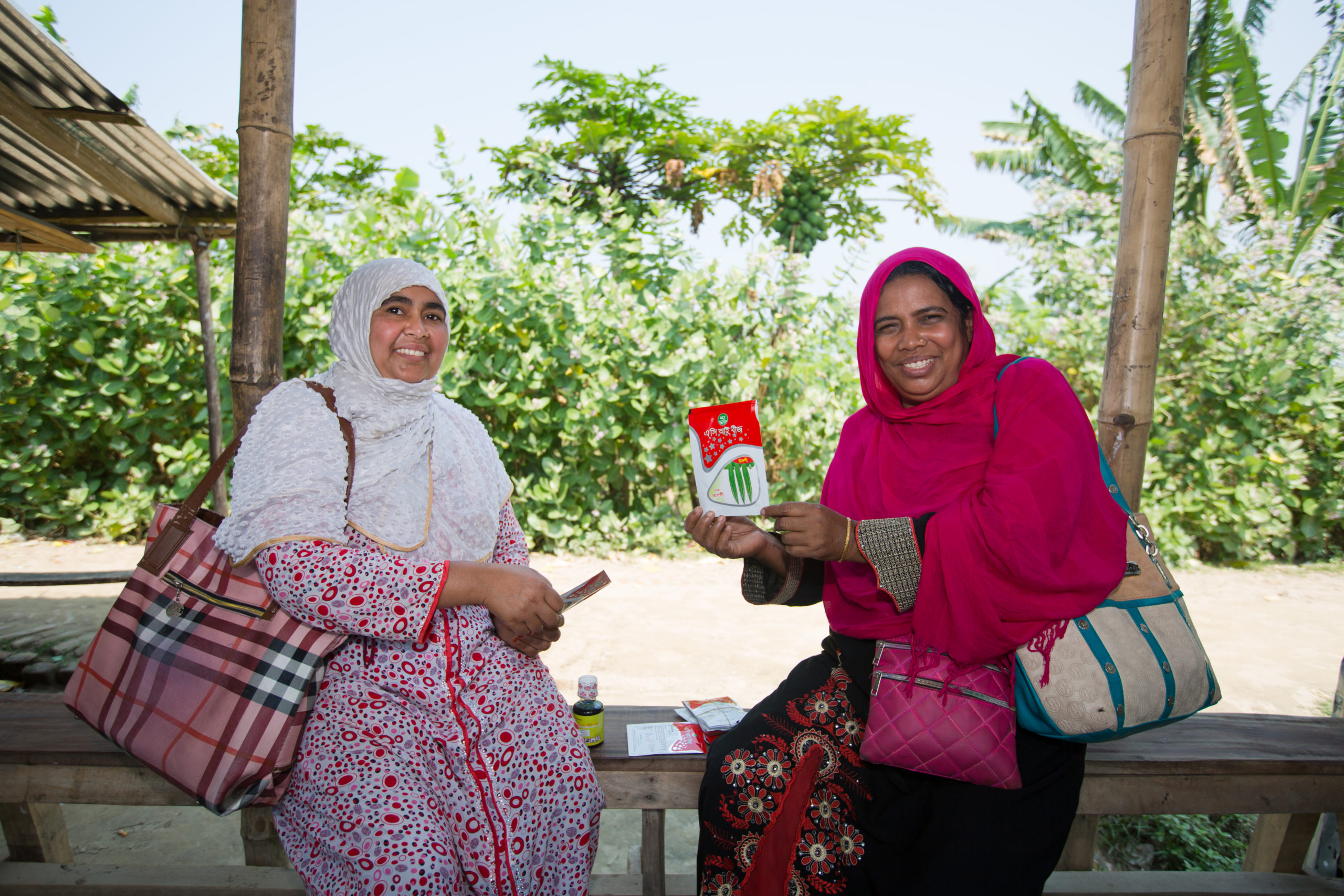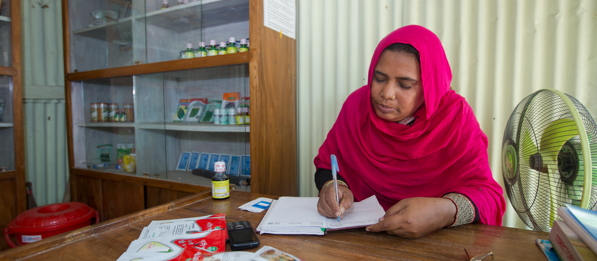This is the first post of Farming First’s #FillTheGap campaign to highlight the gender gap facing rural women working in agriculture.
With only 60 per cent of Bangladeshi women economically active, it can be difficult for those who want to grow a business to engage others. One of the major challenges that rural women often face is a lack of access to social networks, which hinders entrepreneurialism.
When Jahanara Begum, 45, started out as a Farm Business Advisor (FBA), she faced negative comments and scepticism from her family and community in Hizla Upazila, in the Barisal district.
But as her networks began to grow and bring together local market systems, she proved her doubters wrong.
Supported by a Dutch-funded project called PROOFS (Profitable Opportunities for Food Security), led by iDE and partners, she credits the use of mobile phones for creating the necessary linkages and strengthening the access to the market for agricultural inputs.
Jahanara is often seen communicating with government agricultural officers and various market actors to ensure she is able to deliver the products to her customers at the right time. Such interactions would have been much more difficult in person, especially considering the social barriers around gender roles that women face in rural settings.

Jahanara Begum, Farm Business Advisor (Photo: iDE PROOFS)
PROOFS worked with pre-existing community based groups called farm business groups (FBGs) to strengthen their capacity to provide sustainable and independent support to their member households. They later identified and trained FBAs like Jahanara with access to and information on agricultural inputs, production, and output markets whilst capturing a share of the value created as income. The project worked with these groups to identify smallholder producers and form producer groups of 25 members each.
Having worked with some of these pre-existing groups, Jahanara used her contacts to her advantage to not only reach the 250 producer groups as part of the project but to go beyond that to reach more groups in the remove riverine islands (locally known as chars) of the country.
She was able to aggregate demand by developing these groups outside of the project area and assigning producer group leaders to supply inputs. She later took out a loan from a financial institution, overcoming the social norms and other obstacles related to gender bias to expand her business and strengthen her linkages with private companies. Her business track record ensured the financial institution did not deem her risky to give out the loan.
Jahanara’s work and her linkages with various market actors across the supply chain has helped many smallholder producers, including women, generate more income. Activities such as organizing postharvest training between buyers and other market actors further down the value chain to obtain a higher value of crops, and in turn higher margins, is one such example. In total, the project has seen 63,200 households move out of poverty with an additional increase in income per capita of BDT 34,740 (US$420).
For more stories of bridging the gender gap, visit Farming First’s Gender Gap page or follow #FillTheGap on social media.



